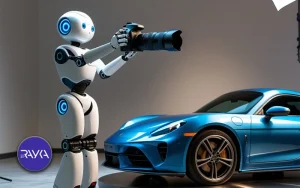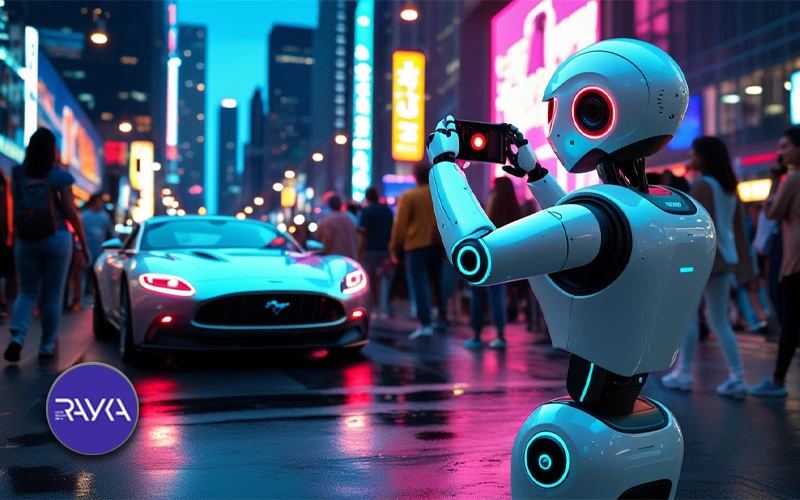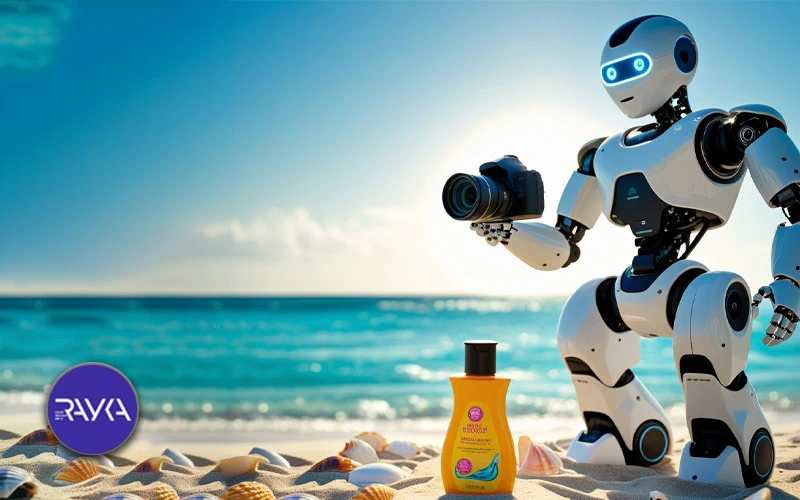
A real promotional teaser is one of the most effective visual marketing methods for attracting audience attention in the shortest time possible. This type of teaser provides a tangible and believable experience of a product or service by realistically showcasing people, places, and events. Major brands turn to real teasers to introduce new campaigns, launch products, or generate excitement in the market, aiming to leave a lasting impression on the audience’s mind with a short story.
In this article, we will fully explain the concept of a real promotional teaser, its features, applications, advantages, its differences compared to animated teasers, and key tips for production. If you want to introduce your brand or product in a professional way, stay with us until the end.
A real promotional teaser is a short and purposeful video created using real elements such as actors, natural locations, lighting, and professional filming. In this type of teaser, there are no digital graphics or cartoon characters; instead, the goal is to create believability and convey the message through tangible realities.
Real promotional teasers are usually produced in a documentary or storytelling style, using real places to display the product, service, or brand. This style is especially suitable for brands looking to build an emotional connection with the audience.
For example, big brands like Nike, Samsung, and even domestic service companies use real promotional teasers to show real customer experiences or introduce innovations. This type of teaser not only fosters a sense of trust in the audience but also allows the brand message to remain naturally and indirectly in the viewer’s mind.
For example
big brands like Nike, Samsung, and even domestic service companies use real promotional teasers to show real customer experiences or introduce innovations. This type of teaser not only fosters a sense of trust in the audience but also allows the brand message to remain naturally and indirectly in the viewer’s mind.
Thanks to their realistic nature, real promotional teasers have a wide range of uses in advertising, from introducing new products to telling the brand’s story. This type of teaser is highly effective in delivering the message, especially when emotional connection with the viewer is crucial.
Real promotional teasers, with their genuine and tangible imagery, can be used for various advertising scenarios. Due to their flexibility in storytelling and live execution, they are particularly effective for brands seeking a human and friendly connection with their audience.
Key applications include:
For a real promotional teaser to be impactful, several key features must be observed, from filming style to narrative approach and production quality. These factors determine how well the teaser can catch the viewer’s attention and communicate the brand’s message.

Using real promotional teasers offers various benefits, making them one of the most popular advertising tools for professional brands. In recent years, artificial intelligence technology has also entered the advertising world, transforming teaser production by analyzing audience behavior, developing creative scenarios, and generating videos automatically.
AI-powered teaser production allows brands to create customized and attractive content with less time and cost. However, real teasers still maintain their special place among reputable brands due to their unique characteristics.
Below, we highlight the key benefits of this style of teaser:
When viewers see images and scenarios similar to real life, they connect faster. Real promotional teasers use real people, locations, and situations, making the brand message feel more sincere and tangible. This connection is fundamental for building trust in the viewer’s mind.
Real teasers typically follow a concise and precise scenario that communicates the brand message clearly and quickly. The combination of real imagery and focused storytelling ensures the information is quickly registered in the viewer’s mind. This is especially effective for short-term campaigns.
When the brand or product is showcased in real, relatable conditions, viewers feel more confident. Real promotional teasers, through honest and straightforward presentation, can reinforce the authenticity and credibility of a brand. This is especially important in fields like healthcare, education, or finance.
Using real people, facial expressions, dialogue, and music in an authentic setting engages the viewer’s emotions. This style of teaser not only conveys the brand message but also leaves an impression or feeling in the audience’s mind—resulting in longer brand recall.
Promotional teasers generally fall into two main categories: real and animated. Each style has its own features, uses, and impact. Choosing between them depends entirely on the brand’s goal, budget, audience type, and intended message.
In the table below, you’ll find the key differences between real and animated promotional teasers to help you make the best choice for your advertising project.
| Feature | Live-Action Advertising Teaser | Animated Advertising Teaser |
|---|---|---|
| Display Style | Uses actors, real locations, and physical elements | Uses graphics, designed characters, and digital visual elements |
| Emotional Impact & Believability | Creates an emotional and realistic connection with the audience | Presents complex or fantasy concepts in a creative way |
| Production Cost | Higher due to filming, equipment, and actors | More controllable depending on the animation style and complexity |
| Production Speed | Requires more time for planning, filming, and editing | Faster if using ready-made templates |
| Execution Flexibility | Limited by physical realities and locations | Can execute imaginary and impossible scenarios |
| Best Suited For | Brands focused on real emotions, trust, and experience | Brands with humorous, fantasy, or tech-oriented tone |
Creating a real promotional teaser isn’t just about having a professional camera and actors; it requires careful planning, understanding the brand, and meticulous attention to detail. Following these tips can multiply the impact of your teaser and turn it into an effective advertising tool:
Accurate Identification of the Target Audience
Before anything else, you need to know who the teaser is being made for. The age, gender, needs, and concerns of the audience can influence the scenario and the way the story is told.
Having a Simple Yet Purposeful Scenario
The scenario should be concise, clear, and at the same time, creative. The main message must be delivered within the first few seconds to keep the audience engaged until the end.
Choosing the Right Location and Professional Lighting
The filming environment must match the type of product or brand. For example, if you are producing a restaurant teaser, proper lighting is crucial for both better display and creating a special vibe for viewers.
Using Actors or Models Suitable for the Brand
The people featured in the teaser should align with the target audience. Choosing the right actor significantly increases the effectiveness of the message.
Proper Use of Logo and Brand Colors
At the end or within parts of the teaser, the brand’s visual identity should be clearly visible so it remains in the audience’s mind.
Creative and Precise Editing
Final editing should have a suitable rhythm and be coordinated with music, dialogue, and images to maintain the overall coherence of the teaser.

Music is one of the most vital elements in a real promotional teaser and can significantly influence the audience’s emotions. The right choice of music can multiply the impact of the brand’s message, whereas the wrong music may diminish the teaser’s effectiveness. Below are the key points to consider when choosing music for your teaser
Music should be selected in a way that it matches the brand’s message and keeps the viewer’s attention. If the music is too fast or too slow, it might distract the audience.
If possible, it’s better to use specific melodies or tunes that the brand has previously used in its advertising. This strengthens the brand identity and its memorability for the audience.
The music should not distract the audience from the teaser’s main message. Be careful to select music that minimally interferes with delivering the intended message.
Music can evoke different emotions in the audience. Therefore, the chosen music must allow the audience to experience feelings appropriate to the brand and the advertisement’s message.
Scenario writing in real promotional teasers is the most important stage for creating compelling and believable content. Since everything is displayed realistically in these teasers, the script and ideas must be designed so that they are entirely natural, understandable, and empathetic.
In a real promotional teaser scenario, the goal is not just to introduce a product or service, but to showcase a real customer experience, a workday, or a documentary-style narrative that creates a sense of trust and warmth. For this reason, scenario design must be based on realistic characterization, tangible situations, and simple, human dialogues.
The most important feature of a professional scenario in a real promotional teaser is alignment with the brand’s identity and the teaser’s purpose. The key points to follow when writing a real teaser scenario include:
The difference between real teasers and motion graphics mainly lies in their execution style and the experience they deliver to the audience. Real teasers, with actors, real environments, and tangible storytelling, create a greater sense of trust and believability.
In contrast, motion graphics teasers are mostly built on graphic design and animation, making them more suitable for presenting complex information or conceptual messages. If your goal is to showcase a real product or create a human connection, a real teaser is the more professional choice.